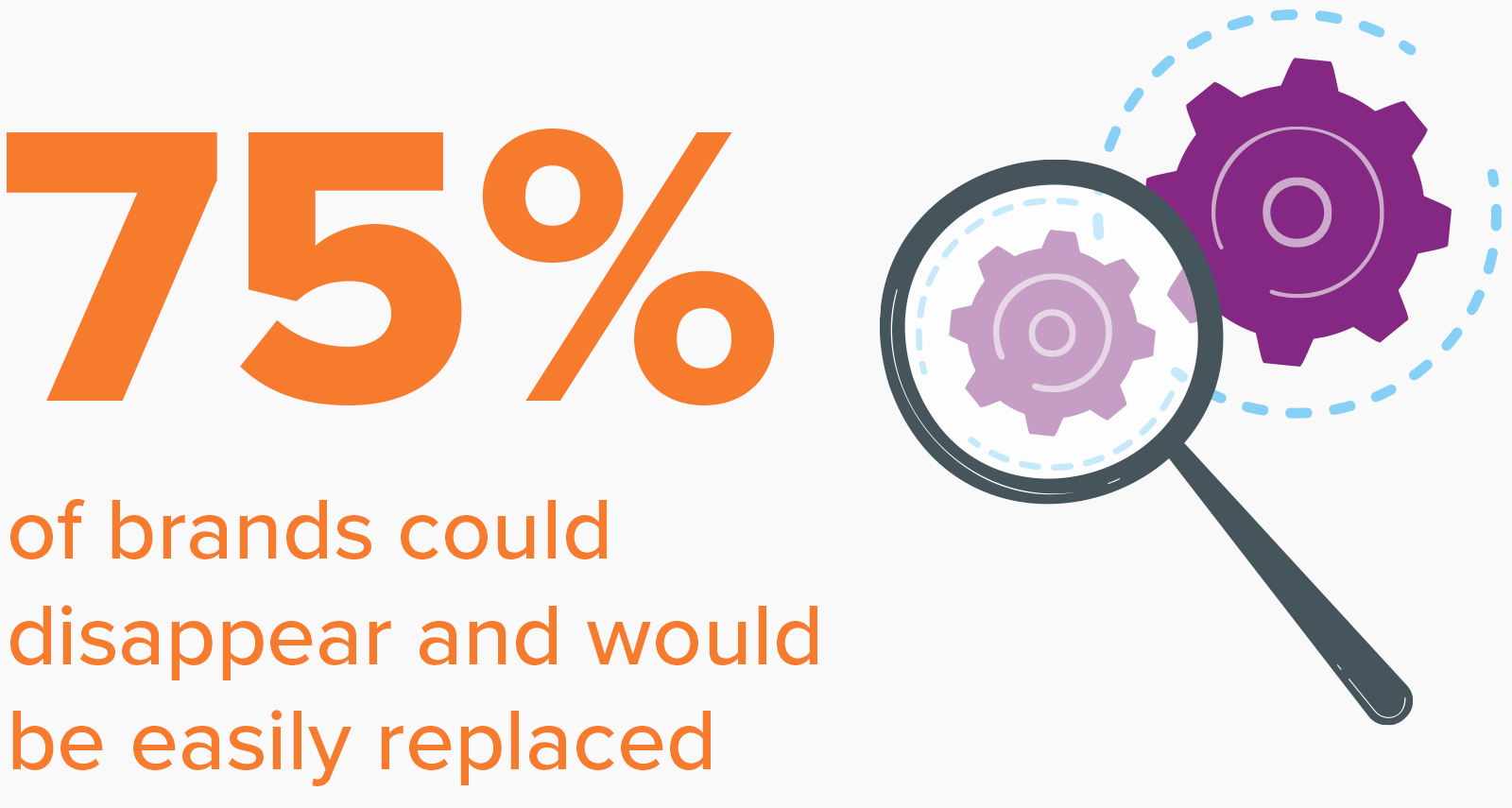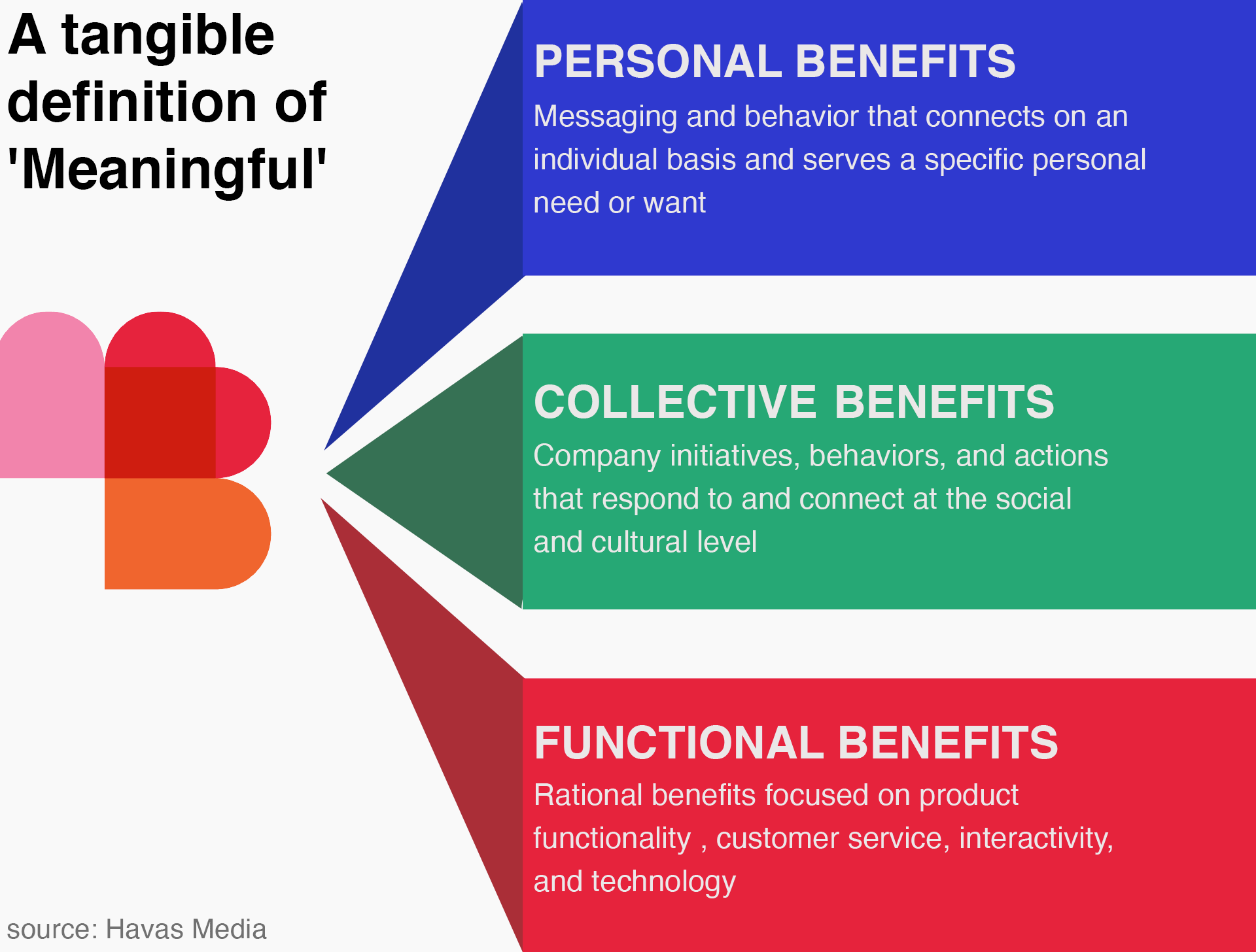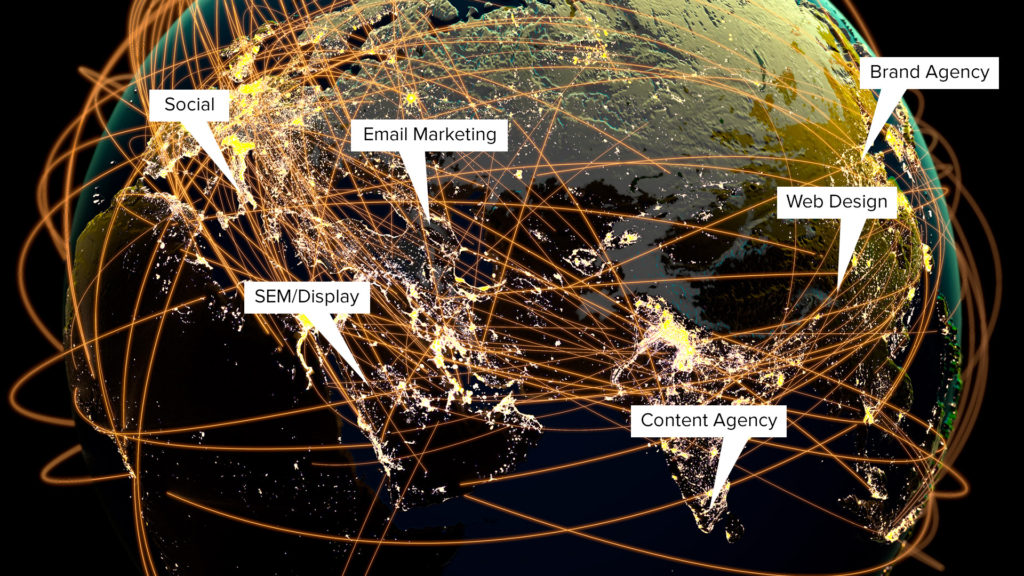There’s never been more demand from consumers for meaningful brand experiences. In a study of more than 395,000 people and 2,000 brands around the globe, Havas Media reported on the current cultural landscape that has impacted consumer behaviours.
The pandemic, political friction, societal demands coupled with the circulation of misinformation and disinformation have had a major impact on consumers’ priorities. The report states that we are now living in the age of cynicism, where some consumers believe that less than half of brands are trustworthy while others believe that 75% of brands could simply disappear and they could switch to another brand without any impact.

So, what’s the good news? Consumers are seeking brands that they believe will make a meaningful difference in the world – those that have a positive benefit to individuals, society, and the environment.
Meaningful brands create trust and wellbeing
The study explores the way that brands can improve people’s lives – whether it’s from a functional standpoint, to enhance their personal well-being, or make a positive contribution to society as a whole. The data for the report was gathered mid-2020, and has captured a growing lack of trust in brands with 71% of respondents stating they’re tired of businesses that fail to deliver on their promises. But this trend isn’t consistent across the globe, with Eastern and Western markets expressing different views on the subject. As outlined in the report, Eastern audiences report higher levels of trust in the West. China, for example, has a 74% trust rate in brands, whereas Australia reports just 39%.
A cause that resonates with your values
So, what can you do to maintain trust in your markets? Consumers are wary of corporate social responsibility (CSR) washing. This is a practice whereby business owners make false public social, environmental, or economic promises or ones that they’re unable to fulfill. Consumers are looking for brands that they can rely on – those that back a cause and stick to it. Business owners that follow through on their promises will reduce the risk of damaging their brand’s reputation.

If you’re struggling to identify just one cause that resonates with the vision of your business, a great place to start is with the 14 dimensions mentioned under the 3 pillars in the report: ‘personal benefits’, ‘collective benefits’ and ‘functional benefits’. When it comes to issues that matter most to consumers, brand expectations are set to rise. 73% of consumers say brands must act now for the good of society and the planet – and 53% of customers are willing to pay more for brands that take a stance on these issues.
The rise in personal benefits
Research suggests that brands tend to prioritise functional benefits such as product safety and responsibility, and fair pricing. However, the value of personal benefits such as life satisfaction and happiness are also on the rise, as are collective benefits such as ethics and transparency are trending long-term. The popularity of personal benefits has risen during the pandemic, as consumer behaviours have changed – they’re more prone to seeking helpful experiences.
Perhaps chronic stress on individuals and businesses during lockdowns around the world played a role in people reporting they believe brands should make their lives easier, or the consumers who believe brands should make them feel truly happy – those are some big expectations! Other overarching themes in consumers’ responses detail needing to feel connected or to be part of a group, so facilitating communication via community forums and better community management may make a real impact.
Gen Z and the push for strong brand values
By aligning your business and your brand with causes that truly resonate with your values, you’ll be more likely to follow through on your promises. You’re also giving yourself (and your brand) the opportunity to deepen your relationships with customers who align with your values. Consumers would not care if 75% of brands completely disappeared. It’s a shocking statistic, however, it’s also proof that customers are waiting for brands to make bold moves and make noticeable changes in the world.
“
55% of Gen Zer’s are seeking to engage with brands that allow them to express their individuality.
”
Not sold? How about the fact that 27% of Gen Zer’s (those aged between 6 and 24 years old) believe that people should dare to disobey and provoke to really have a say. 55% of Gen Zer’s are seeking to engage with brands that allow them to express their individuality. This audience is looking for brevity and authenticity when it comes to brand values and brand experiences. Seeing as this audience holds a lot of power over the market, it’s a good idea to get acquainted with Gen Zer’s behaviours and interests such as their passion for LGBQTI+ rights and environmental sustainability.

Google granted totaling $18 million (135 Crore INR) to expand the reach of public health information campaigns and support emergency relief work in India. Source: Google
Support in times of crisis
Another interesting take away from the report is that 77% of consumers expect that brands show support to people in times of crisis. A financial donation, an updated service or product, or simply, a social appreciation post that acknowledges a global disaster can have a huge impact on your brand and the world. Google, ranked as the most meaningful global brand, has demonstrated its commitment to helping people during disasters time and time again. They even have a Crisis Response and Humanitarian Aid portfolio, providing philanthropic responses to global crises such as natural disasters and public health emergencies. 64% of citizens prefer to buy from companies with a reputation for having a purpose other than just profits. Of course, it helps that they are a global tech behemoth with deep pockets and enormous reach, but don’t underestimate how every little bit counts. By helping others during a crisis, you’ll demonstrate (and practice) empathy, understanding, and general goodwill towards others, which will likely increase trust and loyalty for your brand – not to mention the impact of doing some good for people in need!
To create a meaningful brand takes some work, but to thrive in the future this report shows that business owners must begin investing in meaningful experiences for their consumers, stakeholders, and the world at large. Consumers have high expectations that brands contribute to a happier, healthier, and a more sustainable world. Backing causes that resonate with you and your business, taking a stance on an issue that’s important to you, or responding to a global crisis will not only benefit the world, but it will also benefit your business.





Be the first to comment on "Great brands make meaningful changes to consumer’s lives and the world"